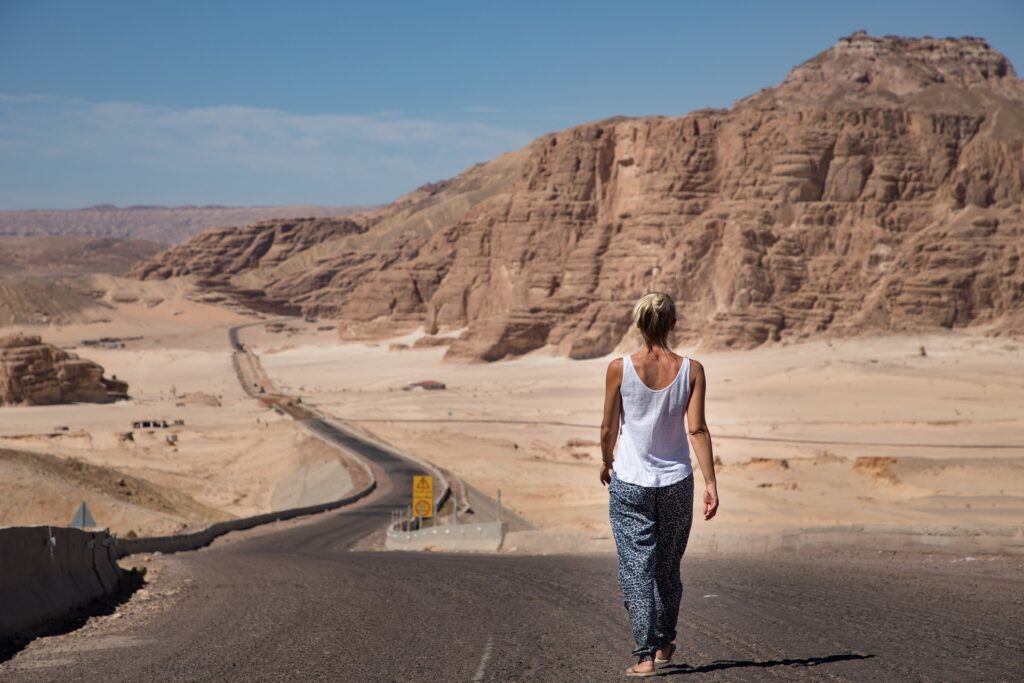Climate change, GDP growth prospects, and awareness of environmental and sustainability issues are redefining tourists’ expectations worldwide. “Several emerging trends are shaping the way people approach travel in the post-pandemic era,” Adir Ron, chief marketing officer for Duve, a tech solutions provider to hotels, wrote in an April blog on the International Luxury Hotel Association website. “These trends are reshaping the travel industry and providing exciting opportunities for both travelers and the travel industry alike.”
Facilities targeting tourists, such as hotels and developments serving leisure travelers, are responding to those changing needs. In February, Michael Parker, co-founder and CEO of Roadbook, a digital travel platform, said on the company’s website that new facilities could cause “disruptions [and] raise the stakes on better user experience to defend positions and attract more savvy travelers.”
Local tourism establishments should catch up with those trends to attract the new generation of international travelers. “I think 2023 will [be] about our industry becoming exponentially more flexible and creative,” Jeremy Selman, operating partner at Hotel Per La in Los Angeles, told Roadbook in February. “That would help to better respond to individual traveler’s wants and needs.”

Changing attitudes
A report from Booking.com on travel predictions for 2023 found 88% of those surveyed would go to a “nostalgic” destination, especially if it is their first trip since COVID-19’s lockdowns. Harnoor Channi-Tiwary, Global Editor at Elite Havens Luxury Villa Rentals and Management (Dusit Thani Group), explained in a December blog that such a preference is due to “so many recent upheavals; people seek the comfort of the familiar.”
However, this time, those “tourists [are] increasingly aware of the impact they make,” Zurab Pololikashvili, secretary-general of the UN World Tourism Organization, told Roadbook in February. They are “determined to travel more responsibly and sustainably.”
Ron of Duve said travelers equate sustainability with being eco-friendly. “We can expect to see a rise in eco-tourism, which focuses on environmentally responsible travel,” he said. “This could include activities such as volunteering on conservation projects, staying in eco-friendly accommodations and supporting local sustainable businesses.”
Another increasingly popular trend is tourists want to avoid crowded places. “The rise of conscious consumers seeking more meaningful travel experiences two years after the pandemic is a movement that’s slowly changing tourism,” Lily Girma, a travel journalist, told Roadbook. “There’s a desire to give back to local businesses as well as minimize one’s footprint and be immersed in the destination in respectful ways. This [trend] will only intensify in the coming years.”
Channi-Tiwary noted this trend will be dominated by the “wealthy who have ‘seen it all before,’ [and have] a growing appetite to see previously unheard of or overlooked places.”
Another rising trend among tourists with high travel budgets is they “are turning to television and movies to seek travel inspiration,” she added. “We expect to see a lot more of that.”
The popularity of travel destinations that specialize in stress relief is also rising. Ron of Duve said wellness travel goes beyond beaches and mountains. “In 2023, we are seeing a rise in [traveling to] yoga retreats, spa treatments, and wellness-focused culinary experiences.”
Meanwhile, an increasing number of travelers go to foreign countries for their culture and art. Jon Gieselman, president of brands at Expedia, said, “Most destinations seeing the largest increases are all culture-rich cities where cultural festivities are getting back in full swing.”
For non-jet- set travelers, being cost-savvy is a priority due to global inflation and low GDP growth prospects. Laura Lindsay, a global trends and destination expert at Skyscanner, a U.K.-based online travel agency, told Roadbook in February, “We predict price-driven travel will be a priority. [That includes] checking out an emerging destination that offers … value, making work [pay] for a blended trip or [doing affordable] trending activities.”
Meanwhile, mixing business with leisure will become increasingly common as technology allows for remote work. “More people are embracing digital nomadism, which involves traveling and working remotely,” said Ron.

New facilities
Hoteliers are investing in facilities to cater to tourists’ changing demands and needs, finding “new ways to immerse in nature” to integrate and benefit indigenous societies,” said Girma. “Hotels are … increasingly more immersed in the outdoors and are transparent about their footprint with customers while encouraging engagement with the local culture and businesses.”
Additionally, those facilities are investing in becoming genuinely eco-friendly. Brune Poirson, chief sustainability officer at hospitality group Accor, told Roadbook in November, “Entirely sustainable hotels will … become a reality.” That means “using green energy, improving energy efficiency, transforming menus and food offerings, creating sustainable supply chains.”
Phil Hospod, CEO and founder of Dovetail + Co, a recreation real estate develop- er, noted, “By partnering with local organizations, hotels can offer authentic and enriching experiences, which help protect [indigenous] places.”
Some tourist accommodations focus on offering luxury for an ever-younger generation of visitors. “Guests continue to get younger and, as a result, place greater value on luxury as a lifestyle,” Vlad Doronin, chairman and CEO of the Aman Group, a hotel developer, told Roadbook in December. “They are … set to represent the majority of the global luxury market imminently.”
Part of that luxury is having high-end concierge services that handle visitors’ logistics and itinerary requirements. A survey by Virtuoso, a global network of agencies specializing in luxury and experiential travel, found “76% of travelers [demand and see the value of] an expert adviser who can save [them] time, energy and the headache of sitting on the phone for hours with customer assistance.”
Accommodating the needs of a new generation of digital nomads within hotel facilities also is increasingly common. Ron said this “demographic of guests … values convenience, flexibility, and the ability to work remotely while traveling.”
He said catering to those nomads usually includes ensuring high-speed internet, co-working spaces integrated into the hotel, and more flexible check-in and check-out times. “Hotels [are even organizing] social events and networking opportunities [with] other travelers and professionals in [those digital nomads’] industries,” added Ron.
Another rising trend post-COVID-19 is travelers going on holiday with more friends and family members. Ron said it is “a growing market segment that values quality time spent with loved ones.” In response, newly built family-oriented facilities “offer [more] spacious [rooms] that can accommodate larger families, with facilities like connecting rooms or suites with separate living areas.”
Creating an environment that appeals to the new generation of tourists is paramount. Tsvetkov said that transformation is a “much-needed head start to help … emerge above [the] competition.”







